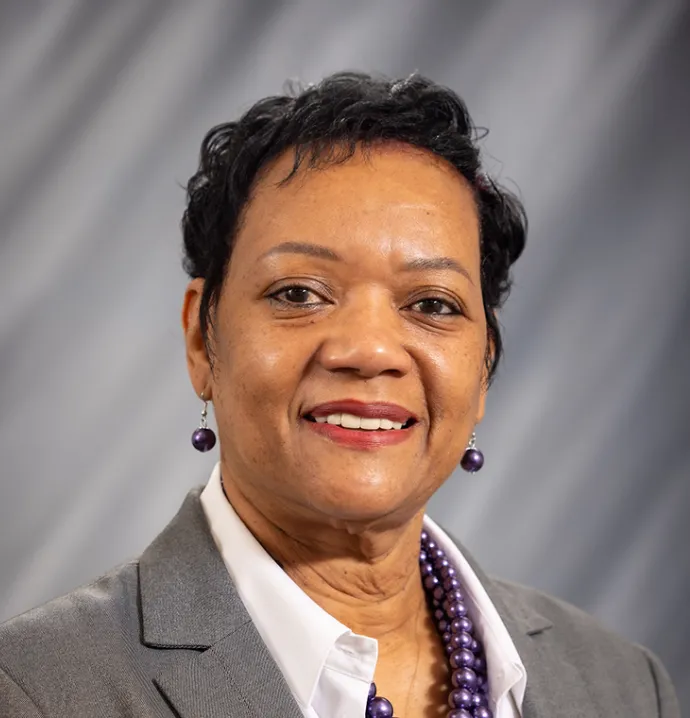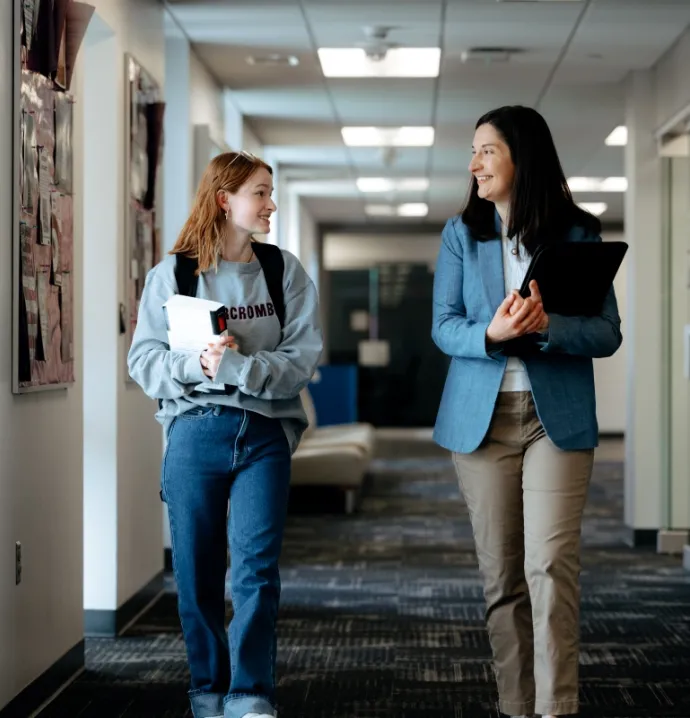UNI public health students host interactive poverty simulation
UNI public health students host interactive poverty simulation
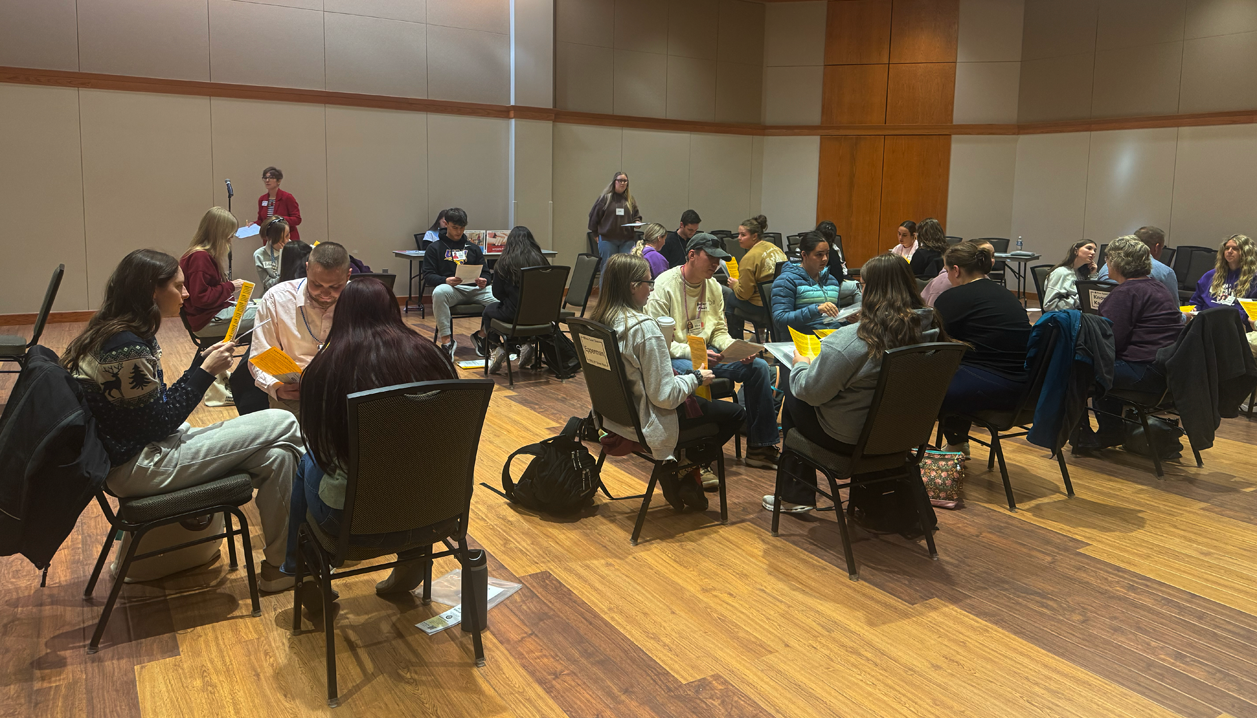
Public health students at the University of Northern Iowa are giving their peers a powerful, hands-on lesson in empathy this semester through the Community Action Poverty Simulation, a nationally recognized program designed to reveal the challenges faced by people living in poverty.
Created by the Missouri Community Action Network, the simulation allows participants to experience what it might be like to live in poverty for a month, all within the span of two hours. Education majors and other UNI students take on the roles of low-income families, while public health majors facilitate the event as part of their coursework in implementing public health programs.
Inside the simulation, students are assigned identities, family roles and life circumstances. Some “families” live in homes, while others are placed in homeless shelters. Each week — condensed into 15 minutes — participants must navigate a maze of real-world obstacles: finding work, arranging childcare, paying utilities, buying groceries and applying for social services.
Their goal is to meet basic needs including keeping their homes secure, feeding their families, maintaining employment and keeping children in school. When the whistle blows, the “week” ends — often before families have managed to complete their tasks.
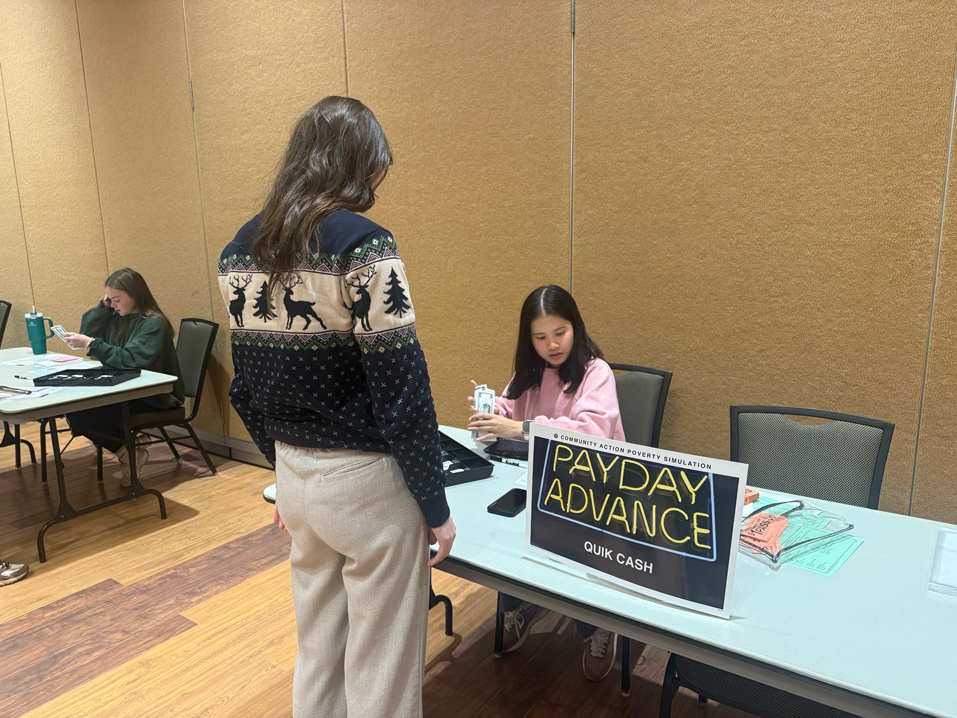
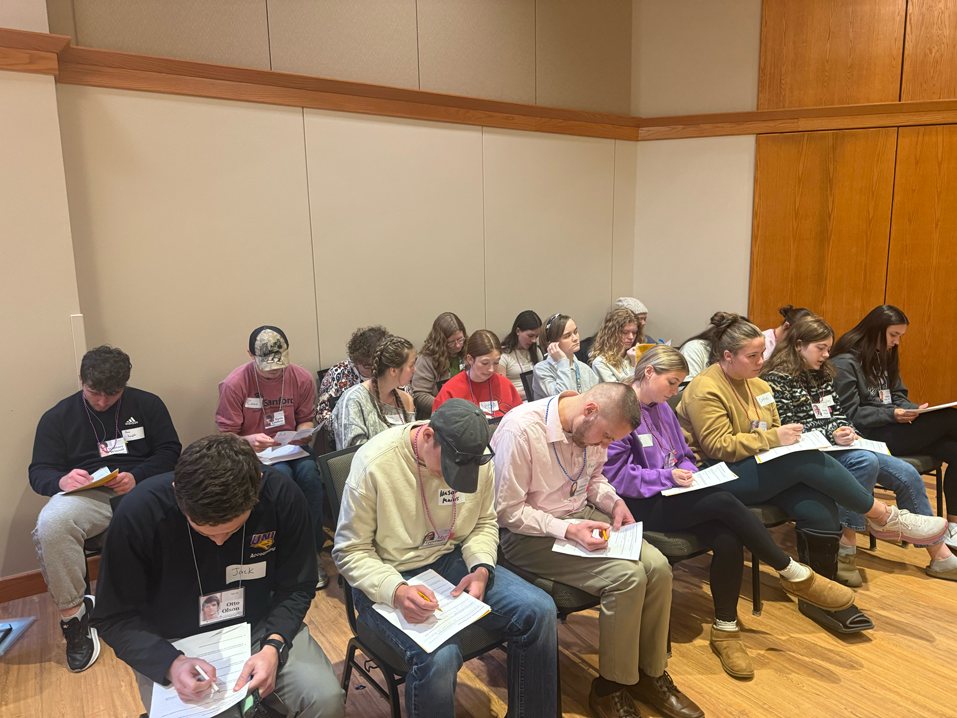
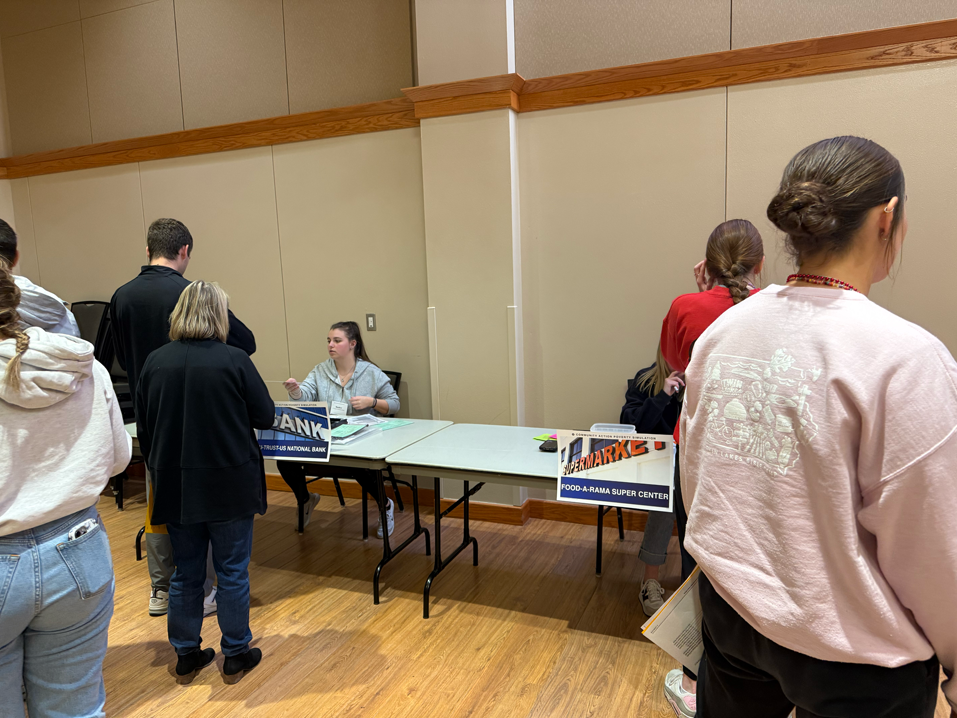
“I was a child in the poverty simulation, so I felt pretty helpless the whole time,” said Justice Dyer, a senior at UNI majoring in marketing management. “I couldn’t work or pay any bills. I did go to the pawn shop where I feel like I got taken advantage of by the owner because I was a child — which felt reflective of the real world.”
While participants navigate these challenges, UNI’s public health students manage the event itself. From coordinating community action stations to leading debrief sessions, they gain first-hand experience in planning and implementing a complex community health program.
“This simulation was truly a collaborative effort,” said public health major Jacey Ordal. “At the beginning of the semester, we started planning with help from our professor, Dr. Susan Roberts-Dobie. We divided the work among registration, advocacy, media and debriefing teams to make sure participants had the most rewarding and genuine experience possible.”
Students also reviewed Iowa-specific poverty data to ensure the information shared during the simulation reflected the reality of local families. According to the U.S. Census Bureau, 11% of Iowans lived below the poverty level in 2024, and 41% of Iowa students qualify for free or reduced lunch. Nationally, nearly 11 million children live in poverty, and 28 million rely on free or reduced school lunch.
Roberts-Dobie, professor of public health, assigned the project to give students hands-on training in community engagement and program delivery. “The purpose of the course is to train students in the delivery of community programming,” she said. “For our public health students, this is a way to learn how to plan and implement programs in the real world. For participants — many who are education and nonprofit leadership majors — it builds empathy and helps them see poverty not as a personal failure, but as a structural issue in society.”
For public health major Alise Brockhaus, the experience revealed how much effort goes into hosting community programs, and how easily people can underestimate the daily struggles of poverty.
“Programs like this give students an inside perspective on the decisions people in poverty have to make every day,” Brockhaus said. “Everyone comes from different backgrounds and poverty is a structural problem — not a personal one. We add the advocacy piece at the end of the simulation to remind people that they can help and make a difference.”
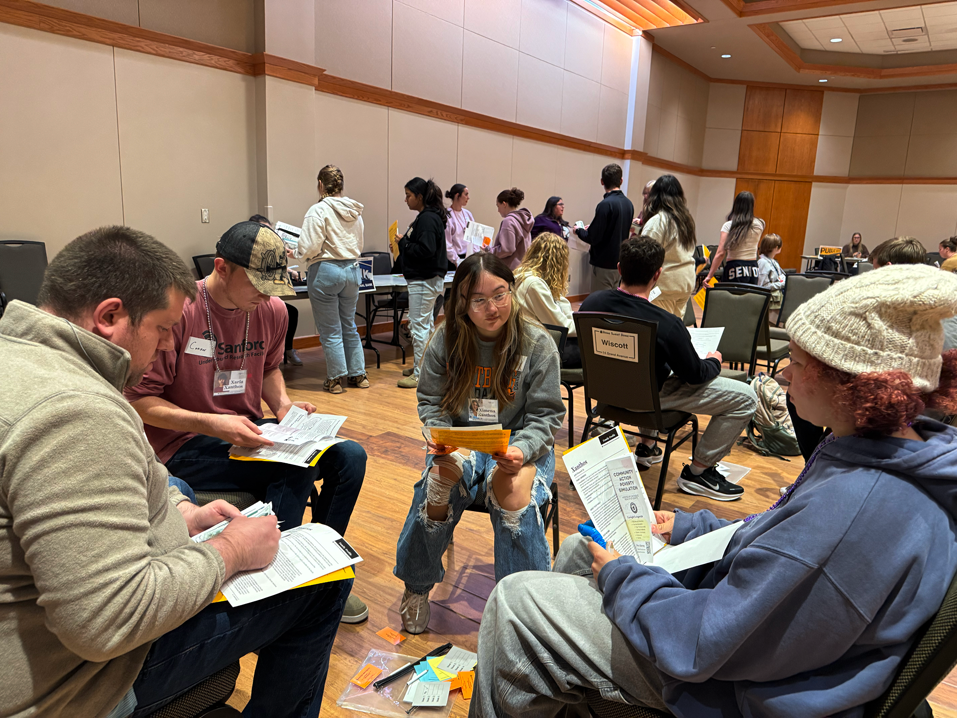
For Ordal, the lessons extend far beyond the logistics of event planning. “This project helped me understand what it means to live in poverty and how important things like time and transportation are in people’s lives,” she said. “As public health students, we can better assist those in need when we truly understand the obstacles they face. Everyone is dealt a different set of cards in life and in order for people to lead happy and healthy lives, we have to be able to support them.”
To learn more about the public health program at UNI, visit csbs.uni.edu/public-health.



